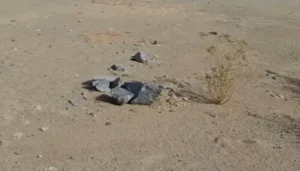In an astonishing turn of events that highlights the miraculous nature of the Qur’an, a British scientist reportedly embraced Islam after conducting an in-depth study of the tomb of Abu Lahab — one of the staunchest enemies of Prophet Muhammad ﷺ. This story not only reinforces the eternal truth of the Qur’an but also reminds us that guidance can come from even the most unexpected paths.
Who Was Abu Lahab?
Abu Lahab, whose real name was Abdul Uzza ibn Abdul Muttalib, was a paternal uncle of Prophet Muhammad ﷺ. Despite their familial bond, Abu Lahab fiercely opposed the Prophet’s message from the very beginning. He went to great lengths to humiliate and harm the Prophet ﷺ and was known for his cruelty and arrogance.
One of the most significant moments in the Qur’an regarding Abu Lahab is in Surah Al-Masad:
“Perish the hands of Abu Lahab, and perish he! His wealth and his gains will not benefit him. He will be burnt in a Fire of blazing flame!”
(Surah Al-Masad, 111:1–3)
This Surah was revealed while Abu Lahab was still alive. It prophesied his eternal damnation, and despite having over a decade to prove the Qur’an wrong by accepting Islam, he remained defiant until his death. His stubborn rejection of Islam and eventual death from a painful illness are seen as a fulfillment of Qur’anic prophecy.
The Scientist’s Journey
According to reports shared across Islamic academic platforms and media outlets, Dr. William H., a British archaeologist and anthropologist, began studying ancient burial sites in the Middle East as part of a broader research project on pre-Islamic and early Islamic grave practices. His attention was drawn to the tomb attributed to Abu Lahab, located in the outskirts of Makkah, although the exact location remains uncertain and debated among historians.
READ MORE: Unlocking Spiritual Growth: 10 Invaluable Lessons from the Quran to Become a Better Muslim
Dr. William, initially skeptical of religion, was intrigued by a local legend stating that Abu Lahab’s body remained untouched for days due to fear of disease. Eventually, his body was buried by remote means, and locals noted that a strange, foul odor continued to emanate from the site — something he attempted to investigate through scientific means.
However, what fascinated Dr. William even more was the consistent narrative he found in Islamic texts regarding Abu Lahab’s fate. When he read Surah Al-Masad, he was struck by the boldness of its claim: a man living at the time of revelation was prophesied never to accept Islam — and the prophecy stood firm for more than 10 years until his death.
The Turning Point
As Dr. William dove deeper into Islamic literature, studying tafsir (exegesis) and hadith accounts of Abu Lahab, he came to a powerful realization: the Qur’an had made a prediction that no human could guarantee — yet it came to pass exactly as revealed. The logic was simple but profound: had Abu Lahab pretended to accept Islam, the Qur’an’s truth would have been invalidated. But he never did.
[wppayform id=”46583″]
This realization shook the core of Dr. William’s secular beliefs. His scientific mind, accustomed to empirical verification, was met with a religious text that demonstrated perfect foresight — an attribute only possible for the Divine. As he studied more of the Qur’an, his heart gradually opened to the beauty and truth of Islam.
Embracing the Faith

In early 2024, Dr. William embraced Islam at a mosque in London, adopting the name Bilal William in honor of Bilal ibn Rabah (RA), the famous companion of the Prophet ﷺ. His shahadah (testimony of faith) was witnessed by many Muslims, and he now speaks publicly about the Qur’an’s miraculous nature and the journey that brought him to Islam.
He has since been involved in interfaith dialogues and has continued publishing academic papers, now focused on Islamic history and archaeology with an insider’s respect for the tradition.
The Qur’an’s Challenge and Prophecy
The Qur’an says:
“Do they not then reflect on the Qur’an? Had it been from other than Allah, they would have found within it much contradiction.”
(Surah An-Nisa, 4:82)
Abu Lahab’s case is one of the strongest evidences of the Qur’an’s miraculous truth. The Prophet ﷺ faced a powerful and hateful opponent, yet Allah revealed a prophecy that this man would never believe — and that his wealth and lineage would not save him. The fact that this prophecy stood unchallenged, even with the ease Abu Lahab could have had to falsify it, continues to awe believers and seekers of truth.
Conclusion
The story of Dr. William’s conversion after studying the case of Abu Lahab is a striking reminder of the enduring power of the Qur’an. It invites both Muslims and non-Muslims alike to reflect on the divine nature of the scripture, and the many miracles embedded within it. As Dr. William often says in his lectures now:
“What man can predict the future and never be proven wrong? Only a Messenger of God — and only a Book from God.”
Other Scientists Who Embraced Islam
1. Dr. Maurice Bucaille (France)
-
Profession: Physician and researcher
-
Reason: Studied the Qur’an’s compatibility with modern science.
-
Notable Work: “The Bible, the Qur’an and Science”
“The Qur’an contains statements that are amazingly consistent with modern science. It is impossible for a man in the 7th century to have authored it.”
2. Prof. Keith L. Moore (Canada)
-
Profession: Embryologist
-
Reason: Discovered the Qur’an’s precise descriptions of embryonic development.
-
Notable Work: Collaborated with Islamic scholars on Qur’anic biology references.
3. Dr. Jeffrey Lang (USA)
-
Profession: Mathematician
-
Reason: Drawn to the Qur’an’s spiritual and logical clarity while searching for life’s purpose.
-
Book: “Struggling to Surrender”
“Islam didn’t ask me to suspend reason; it asked me to use it.”
– Prof. Jeffrey Lang
The Qur’an’s Inimitable Challenge
“Do they not then reflect on the Qur’an? Had it been from other than Allah, they would have found within it much contradiction.”
(Surah An-Nisa, 4:82)
Surah Al-Masad is one of the most powerful proofs of this verse. No human could accurately prophesy that a living adversary would never believe — and remain accurate for over a decade until his death.
References:
-
The Holy Qur’an, Surah Al-Masad (Chapter 111)
-
Tafsir Ibn Kathir – Commentary on Surah Al-Masad
-
Al-Bidaya wa’l-Nihaya by Ibn Kathir – Biography of Abu Lahab
-
Sahih Bukhari – Reports on the opposition of Abu Lahab
-
Dr. Jamal Badawi – “The Miraculous Nature of the Qur’an”, Islamic Research Foundation
-
Harun Yahya – “Miracles of the Qur’an”, Goodword Books
-
Public interviews and testimony by Dr. Bilal William (shared on UK Dawah Channel, 2024)



